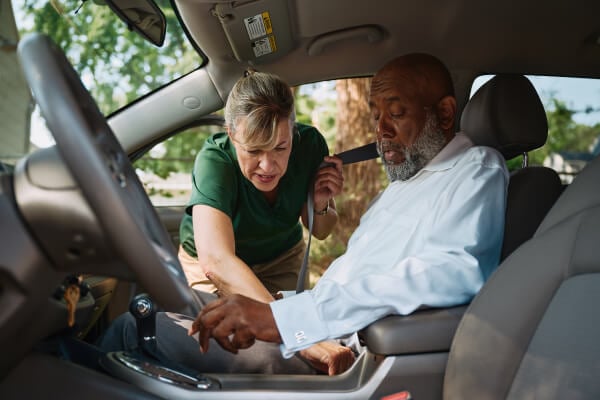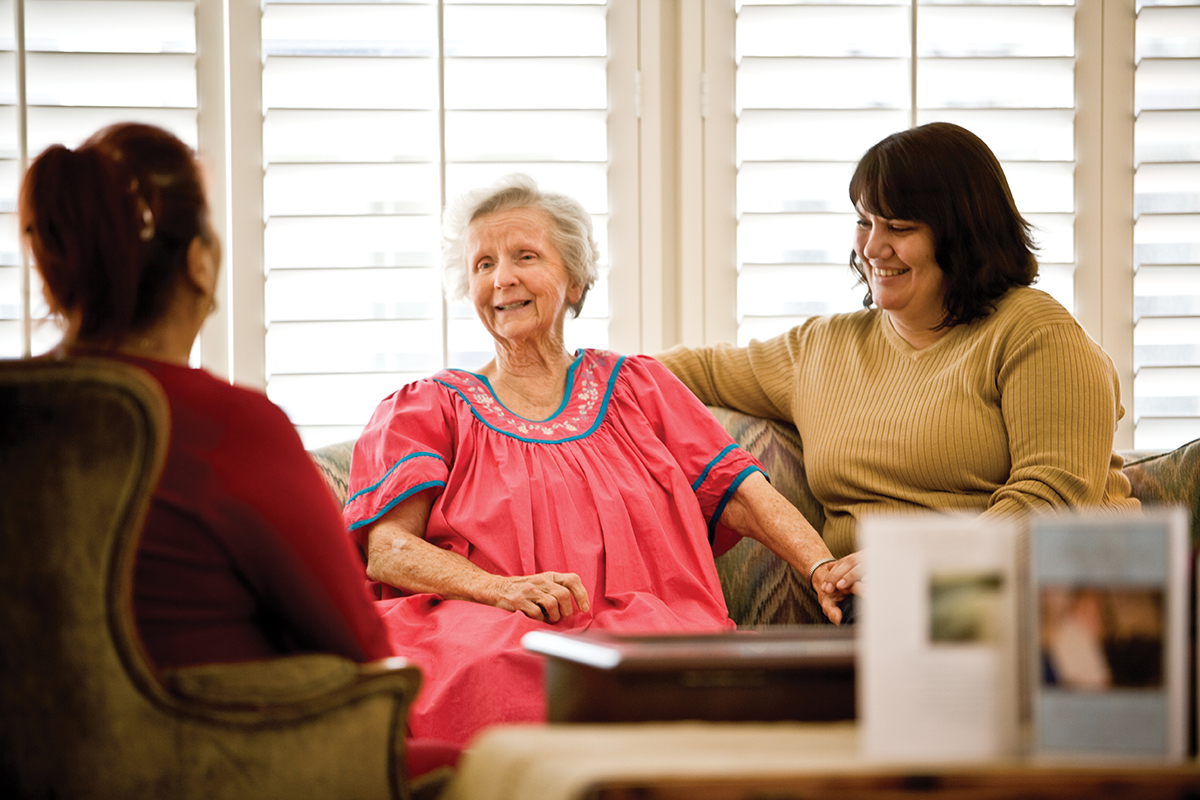If you’re an aging adult or provide care for one, the list of doctor-ordered tests can seem endless. Colonoscopy, endoscopy, gastroscopy, esophagogastroduodenoscopy. Phew! The list goes on.
When it comes to the issues of aging, older adults and their families may neglect another important assessment – one that examines living and financial issues, health, relationships, driving and end of life. We call it the ‘elderoscopy.’
“It can be easy to avoid discussing and planning for the later stages of life,” noted Lakelyn Eichenberger, Ph.D., Home Instead gerontologist and caregiving advocate. “Dodging important issues not only can jeopardize an aging loved one’s health, but could lead to family discord and unhappiness. Starting the conversation is the first step.”
Hurdles, like family communication, may stand in the way of aging well. Here are three ways to begin a successful aging plan:
1. Conduct an Elderoscopy by responding to the six questions below
2. Download the aging plan
3. Consider home care
Do you see yourself in a granny pod near your son or in a downtown high-rise? Most people have an idea where they would like to age. Research reveals that the majority prefer to stay in their own homes.
How do I start the conversation about living arrangements with my family?
If you’re caring for an aging loved one, try starting a conversation by asking one of the following questions. Contemplate the questions as well. Then compare your responses to consider how you would work together to plan for the future.
- “What things would you never want to give up in your forever home?”
- “If you were diagnosed with dementia tomorrow, where would you want to live?”
- “If you needed care at home, would you rather it be from a family member or a professional caregiver?”
Are there resources to help me or my loved one choose where to live?
What will you be doing at 70? Rocking grandbabies or sailing the Pacific? Bucket lists are as individual as the authors who create them. Some older adults aspire to visit faraway places or launch second careers. Others prefer the quiet company of family and friends. Make sure your financial plan can support the lifestyle you or an older adult desires.
How do I start the conversation about lifestyle and finances with my family?
If you’re caring for an aging loved one, try starting a conversation by asking one of the following questions. Contemplate the questions as well. Then compare your responses to consider how you would work together to plan for the future.
- “Which would you rather have, more time, money or memories?”
- “Are you worried about running out of money to support the lifestyle you desire?”
- “How would you prioritize your ‘must-haves’ for later in life, such as your home, travel budget, et cetera?”
Are there resources to help me or my loved one learn about lifestyle and finances?
Staying healthy can be hard work, but it doesn’t need to be overwhelming. Even small changes in diet and exercise can pay dividends. Consider today whether the choices you or a loved one has made is leading to better health.
How do I start the conversation about healthy living with my family?
If you’re caring for an aging loved one, try starting a conversation by asking one of the following questions. Contemplate the questions as well. Then compare your responses to consider how you would work together to plan for the future.
- “What is one area of your health you would change if you could?”
- “Do you have trouble managing medications and supplements?”
- “How do you feel about your current activity level?”
Are there resources to help me or my loved one learn about healthy living?
Will you look for love on Silver Singles, or embrace your newfound alone time? Many single older adults have happy and satisfying lives alone. Others miss the love and companionship of a spouse or significant other. Have you thought about what you would do if you became single later in life?
How do I start the conversation about dating with my family?
If you’re caring for an aging loved one, try starting a conversation by asking one of the following questions. Contemplate the questions as well. Then compare your responses to consider how you would work together to plan for the future.
- “Who and where was your first kiss?” Ask an older loved one if they are willing to share their first kiss story. Reminisce about the romance in your lives.
- “How important is romance? Would you rather share your life with a special someone, or focus on your children, grandchildren and friends?”
- “If you lost a spouse or significant other, would you want to date again?”
If you’re an older adult interested in dating, but concerned your family would object, here’s one way to break the ice: “I’ve been so lonely since Dad died. John down the street has invited me to dinner. I’d like to go. You know I’ll always love your dad, but we all need companionship.”
Are there resources to help me or my loved one learn about dating and relationships in the golden years?
Nothing expresses independence more than driving. Many older adults are driving safely; some are even Uber or delivery drivers. Losing this privilege, or being asked to give it up, can be upsetting. Consider when you or a loved one would need to adjust driving habits or give up the keys altogether.
How do I start the conversation about driving with my family?
If you’re caring for an aging loved one, try starting a conversation by asking one of the following questions. Contemplate the questions as well. Then compare your responses to consider how you would work together to plan for the future.
- “How would you feel if you had to give up driving?”
- Ask an adult you’re concerned about: “Gosh Dad. I noticed a few dents and dings on the car. What happened?”
- “Mom, I’d love to take a drive with you. Why don’t we schedule something for the weekend? You drive.”
When the time comes to give up driving, look into transportation alternatives like friends or family, a ride share app like Uber or Lyft or a caregiving professional to ensure an older adult remains independent.
Are there resources to help me or my loved one evaluate driving?
End of life can be such a sobering issue that many people put off planning for the inevitable. It is not only important to plan for someone’s funeral but also the days, months and years leading up to it. Having these discussions earlier can help to prevent last minute decision-making during a crisis while also ensuring you or your loved one lives life to the fullest until the end.
How do I start the conversation about end-of-life planning with my family?
If you’re caring for an aging loved one, try starting a conversation by asking one of the following questions. Contemplate the questions as well. Then compare your responses to consider how you would work together to plan for the future.
- “What’s your biggest fear about passing away?”
- “If you could no longer make your own decisions about care, who would you want to act in your best interests?”
- “What kinds of care do you want to receive at end of life and where would you like to receive it?”
- “My friend’s father recently passed away and he did not do a good job planning. That put a lot of stress on my friend and her siblings. Would you be up for talking about your wishes so our family can avoid a similar experience?”
End of life is not a one and done conversation. Revisit the end-of-life conversation especially after a major life event, like the death of a spouse or a major health diagnosis.
Are there resources to help me or my loved one plan for end of life?
Compassionate Home Care




